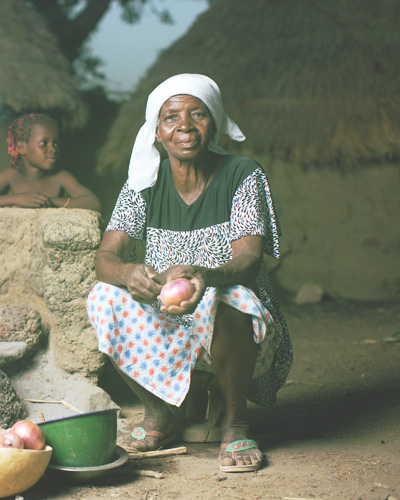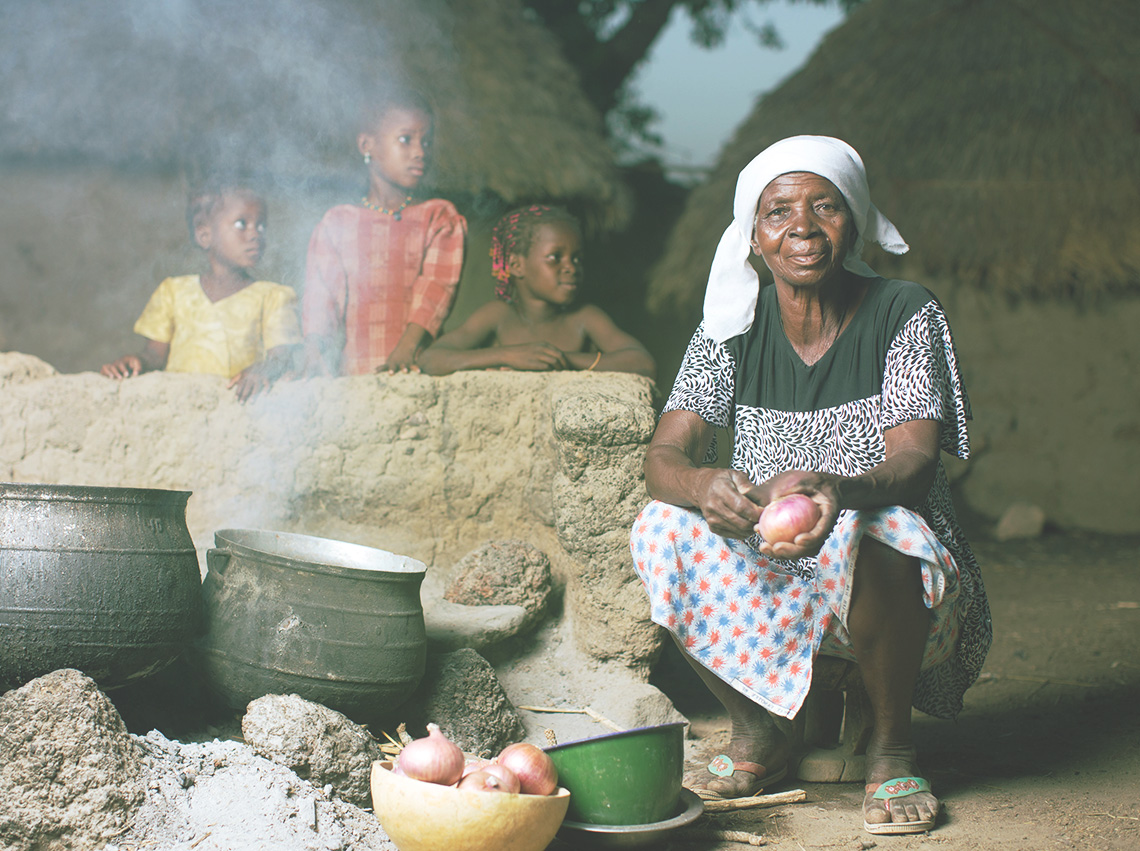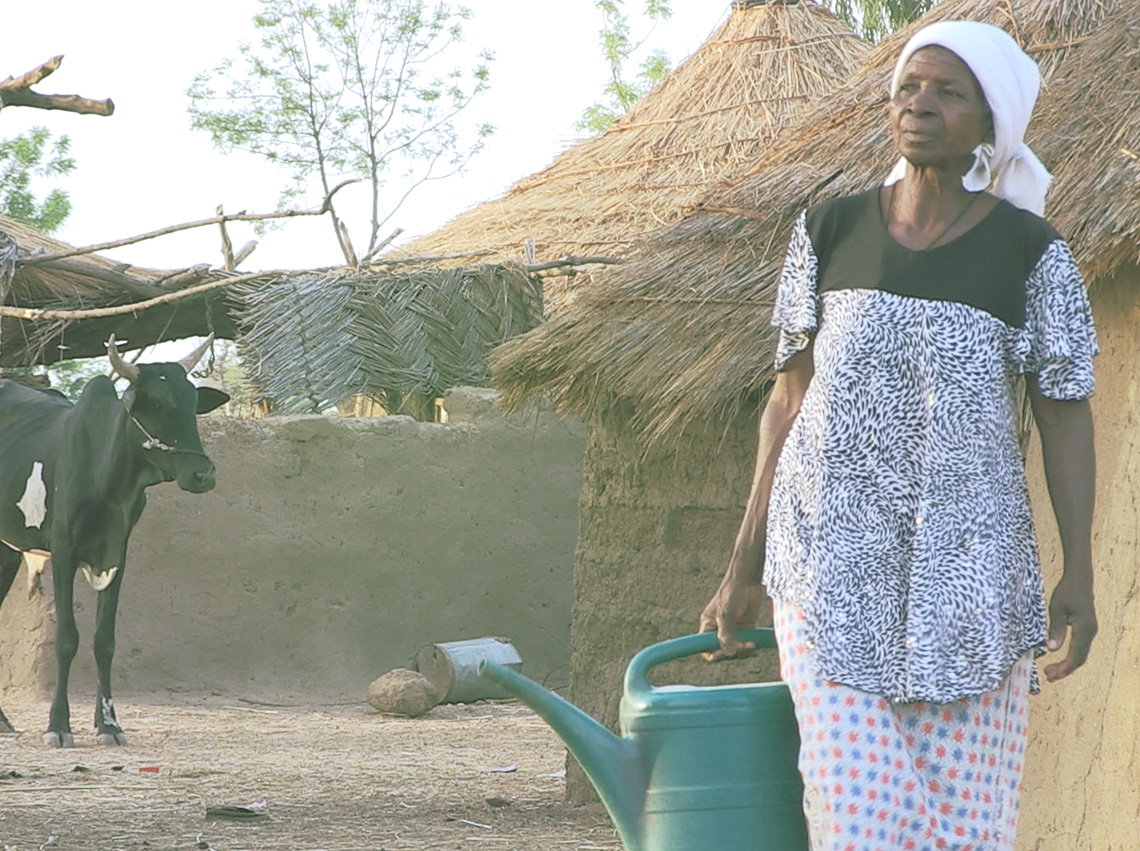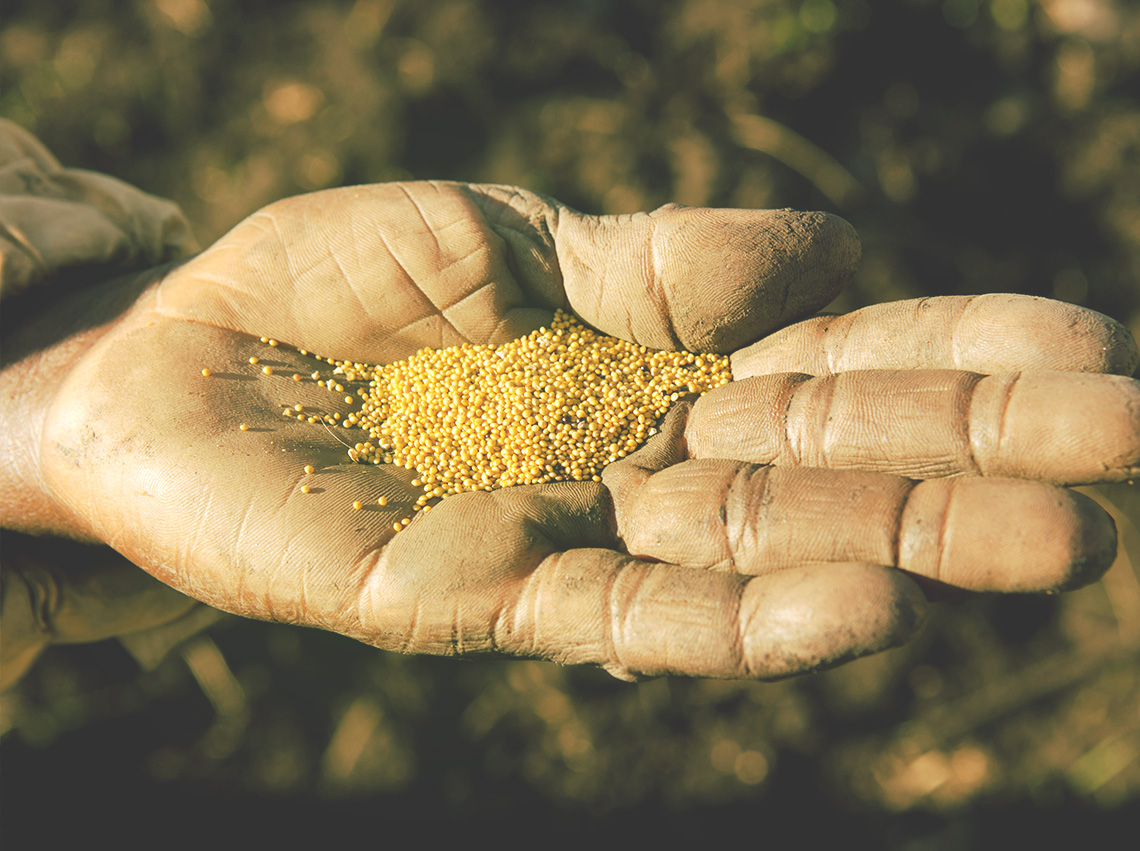Annmarie’s story:
Feeding a Family of 17 with Climate-Smart Seeds
Burkina Faso
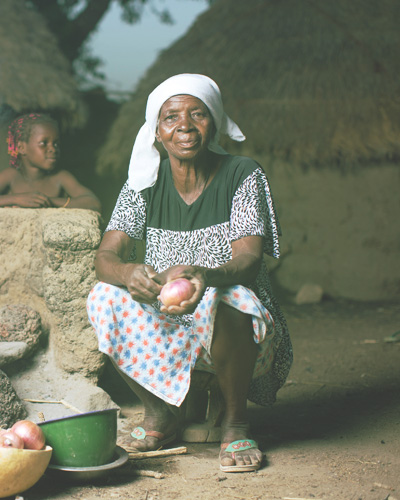
Name
Annmarie Venegba, 67
Location
Zombrebonghin village, Burkina Faso
Farm Type
Vegetables, horticulture
Annmarie is the chairperson of a 57 strong irrigated vegetable production group in Zombrebonghin village, Burkina Faso. She is the head of her household since she was widowed nine years ago, and cares for 12 young grandchildren, nieces and nephews.
My day to day work as a farmer is producing millet, maize, sesame and vegetables, but the amount of land that I have is too little to produce the food we need. There is a problem with rainfall. Things have changed from when I was young. There is no longer enough rain, and the two hectares I have is not enough to feed 17 people in the household.
Self Help Africa has been working with farmers in Annmarie’s village, to diversify their food production, establish sustainable on and off-farm small businesses, and assist them to mitigate the effects of global warming by adopting climate smart farming techniques.
A hand-dug well was excavated in the village to provide the group with water for irrigation, and drip-kits were installed to optimise the use of the water. This meant that the farmers were less reliant on rainfall.
The gardening group in Zombrebonghin also received equipment, including wheelbarrows, spades and hoes to assist them in their work, and were provided with drought tolerant cereal seed to help them to increase their yields, and diversify their production to include new crops, including groundnut.
“Last year I used money I earned from our garden to build a new house in our compound,” says Annmarie. “It was the second new house we have built in the past few years, and has given us more space for everyone to sleep. It also has a tin-roof, and means that we won’t have to replace the grass roof every few years. I hope in the future to have the money to send a few of the children who have not had an education, to school.”
Annmarie’s calls to action:
We need better quality seed to end hunger. We need seeds that will grow over a short cycle and does not depend as much on rainfall. Expecting our crops to survive for four months in the ground is risky. If we had crops that would mature and could be harvested after two and a half or three months it would reduce our vulnerability a lot.
The new goals that are being talked about must look to support women. At present the men in our communities receive most of the help, and the women are ignored. Women are important in village life. They do a lot of the work on the farm, and also take responsibility for the children and the sick, and make sure that all of the family has food to eat.
Help needs to be extended to all – whether it comes from the international community, from our government and ministry of agriculture, or from the NGO community. Currently, I am fortunate. I receive help with my farm work, but there are thousands of others in Burkina Faso who struggle.
